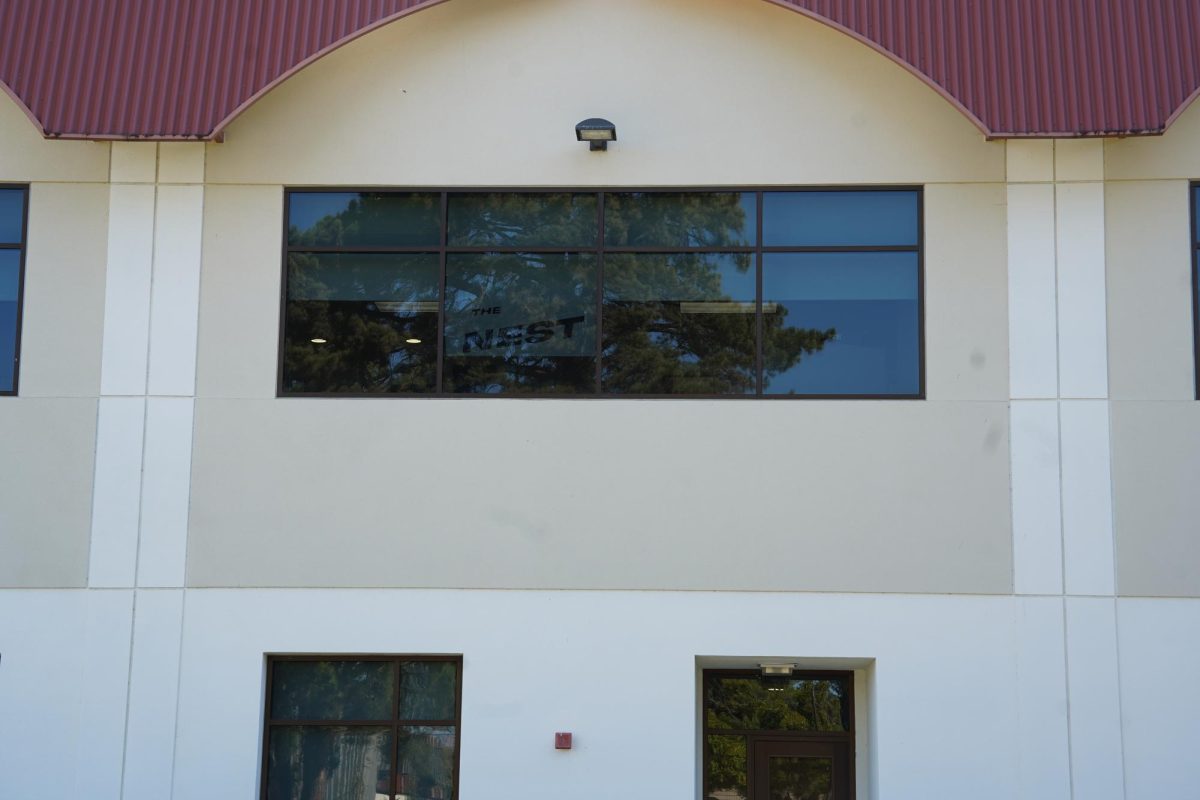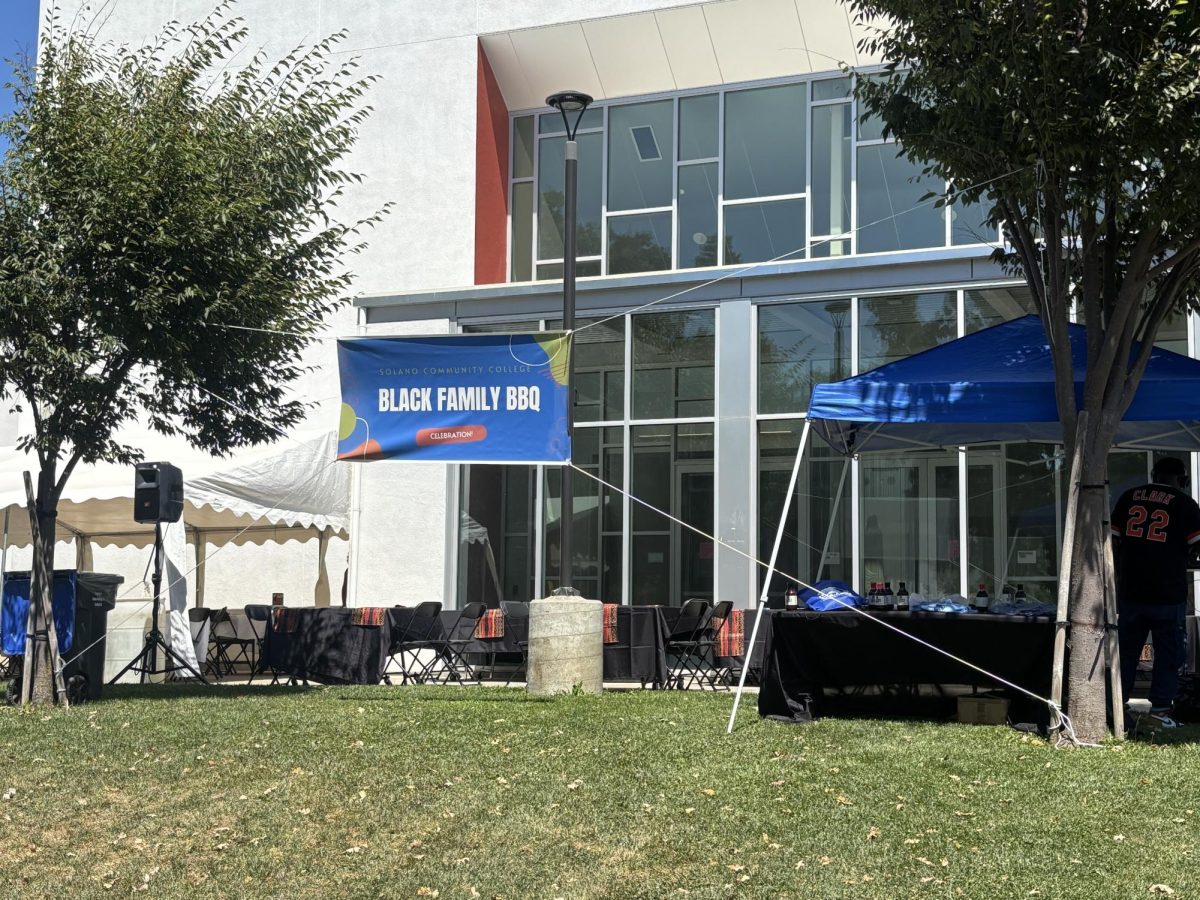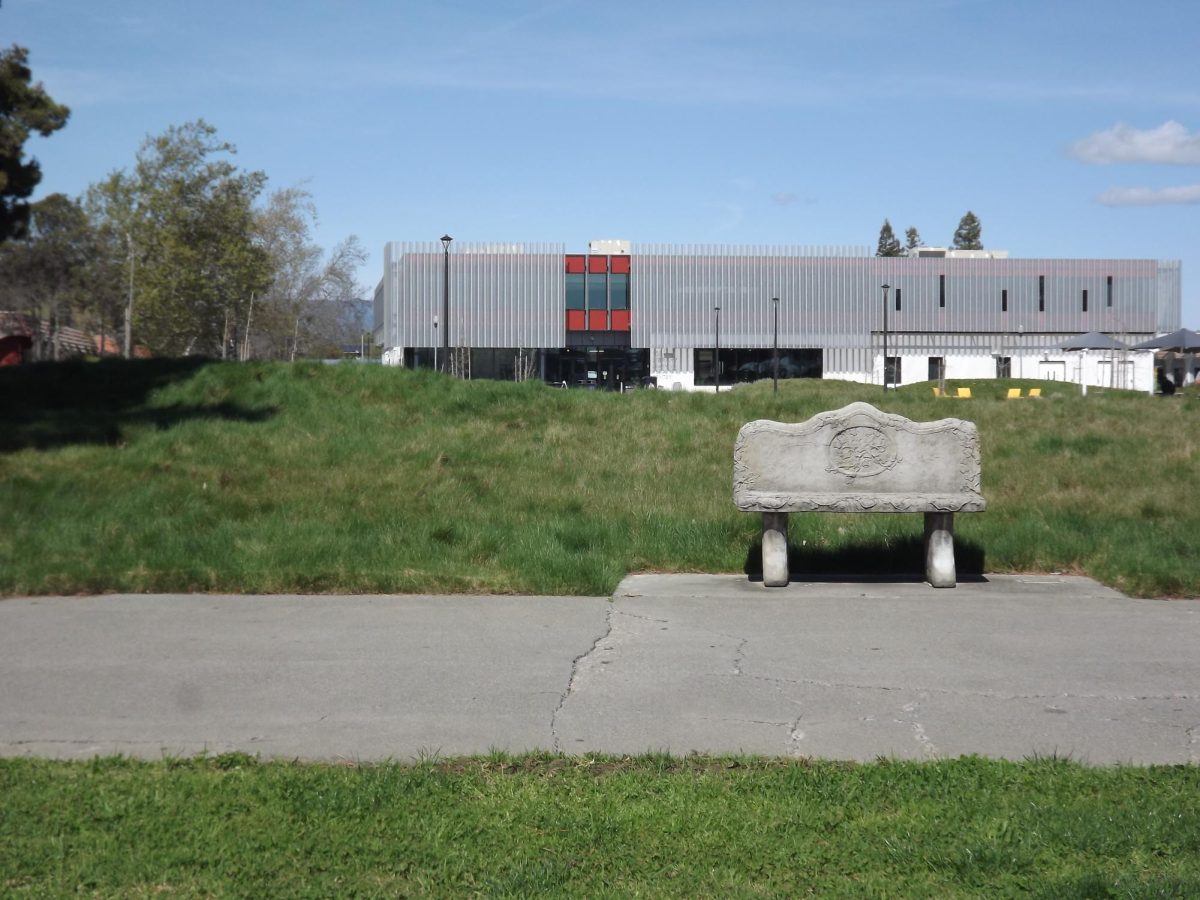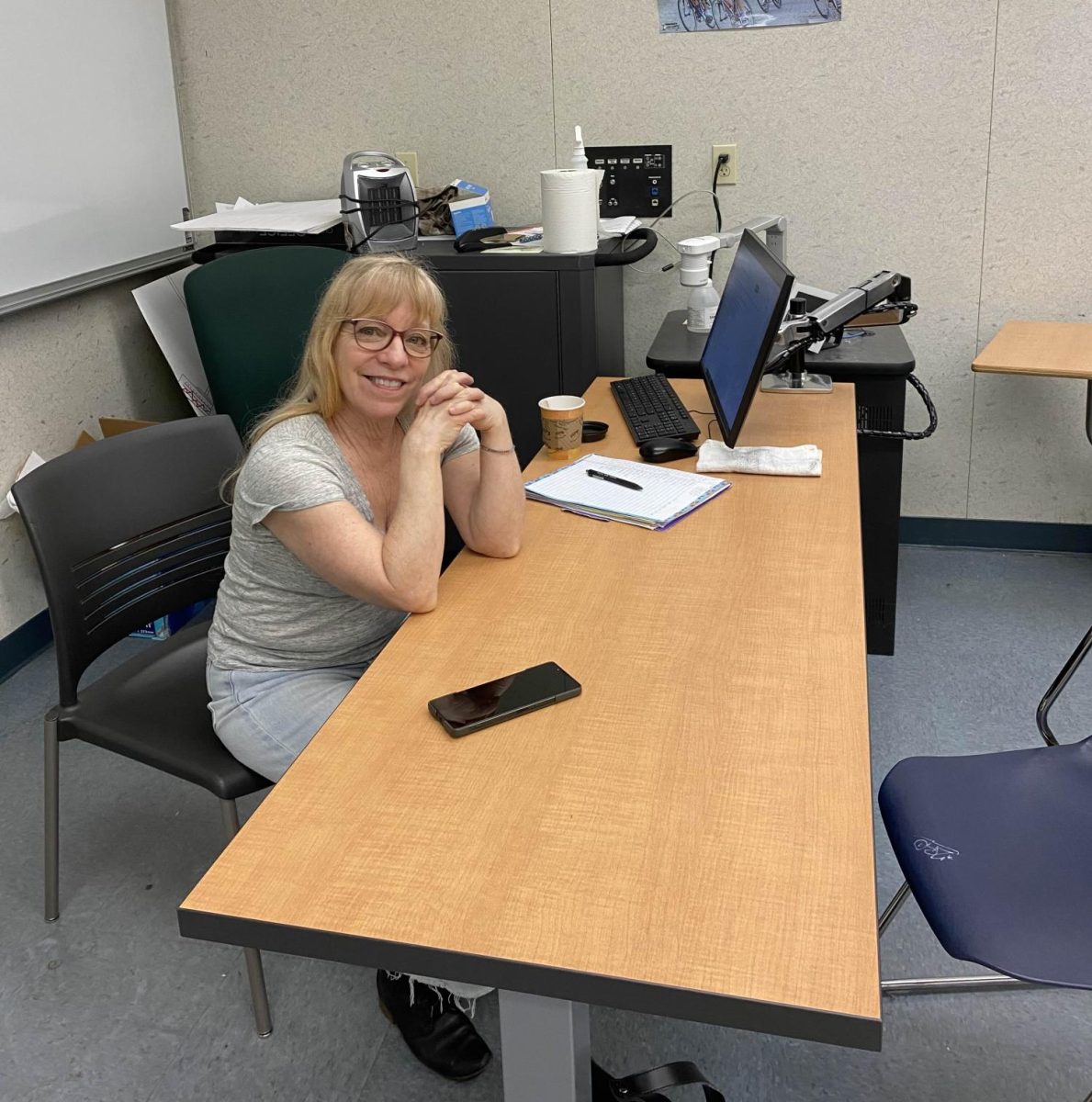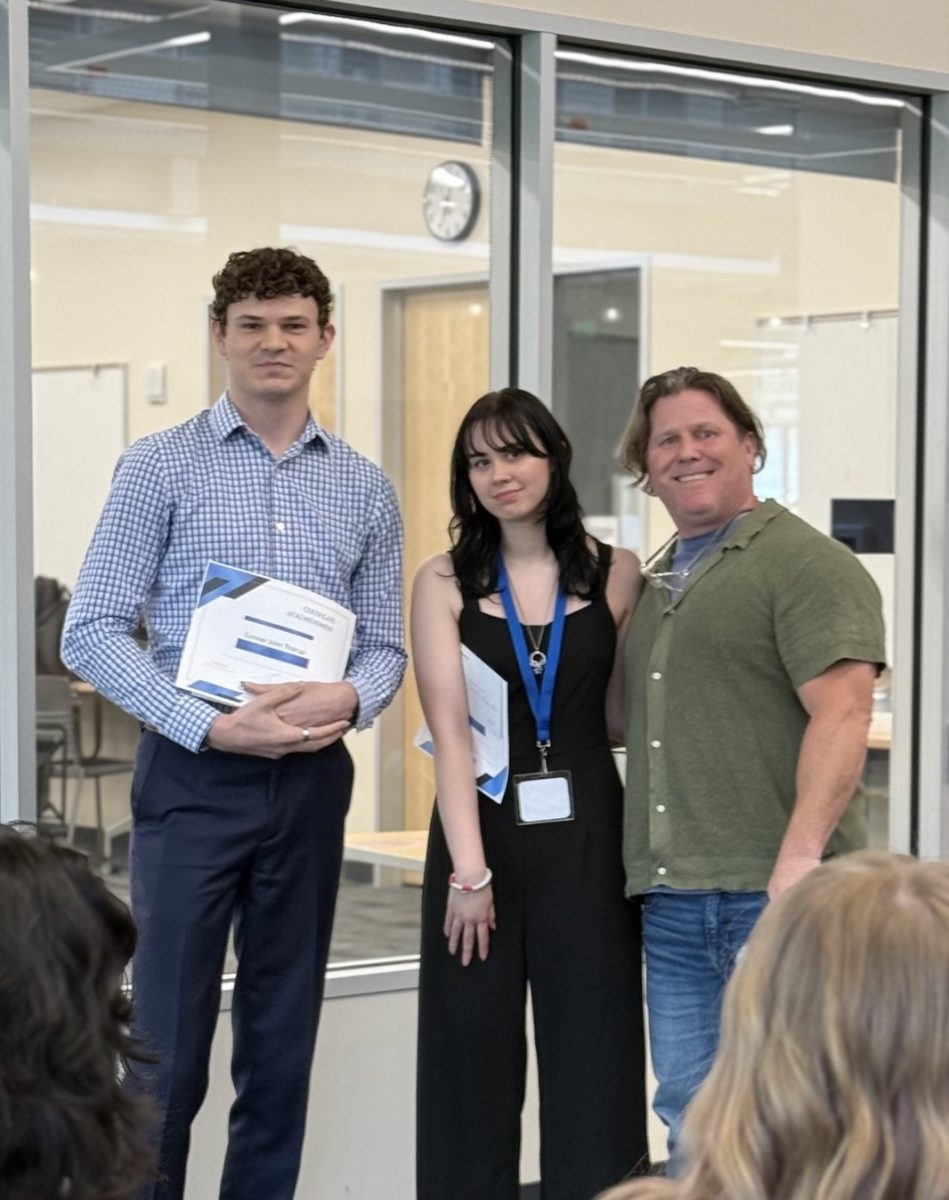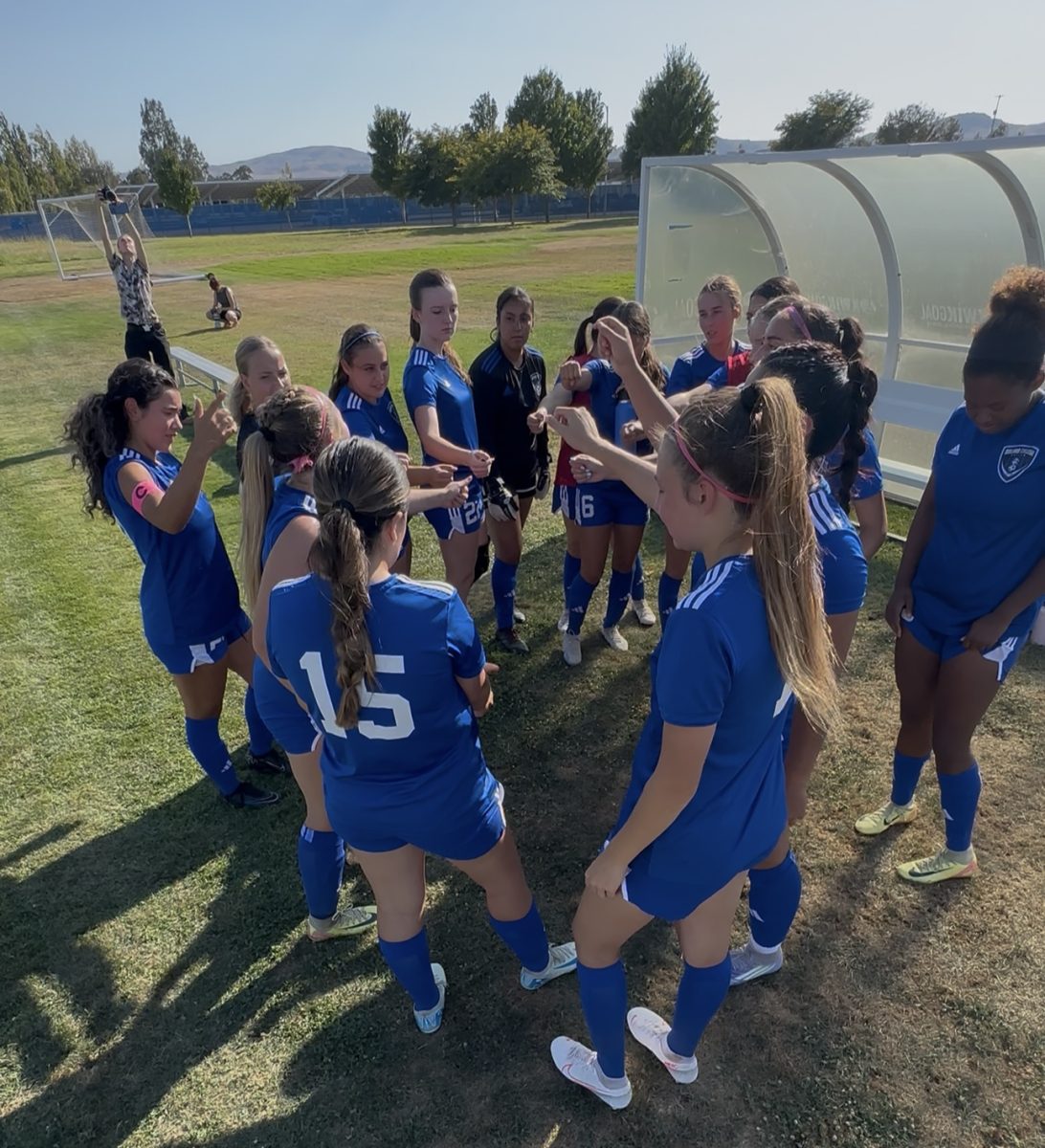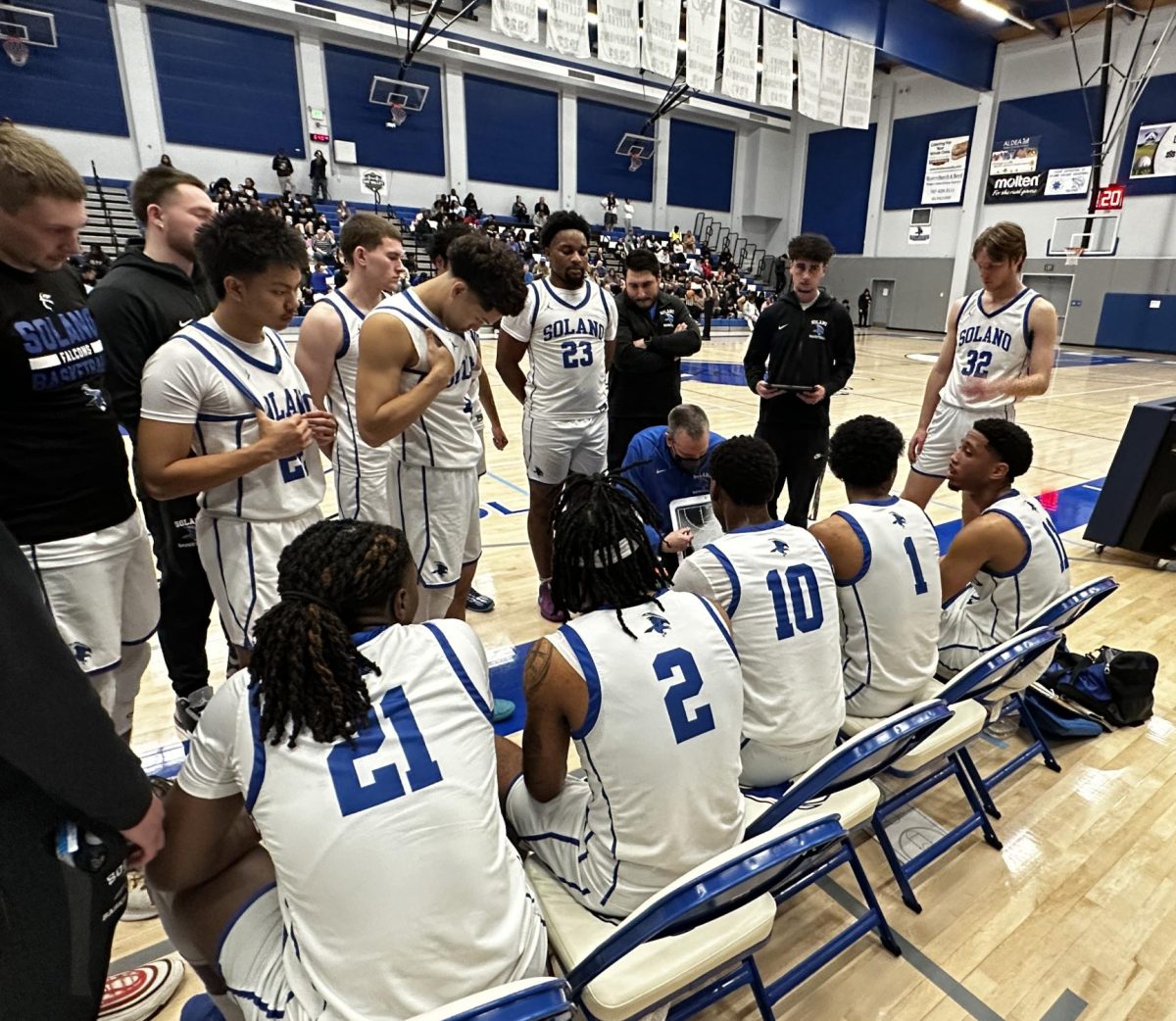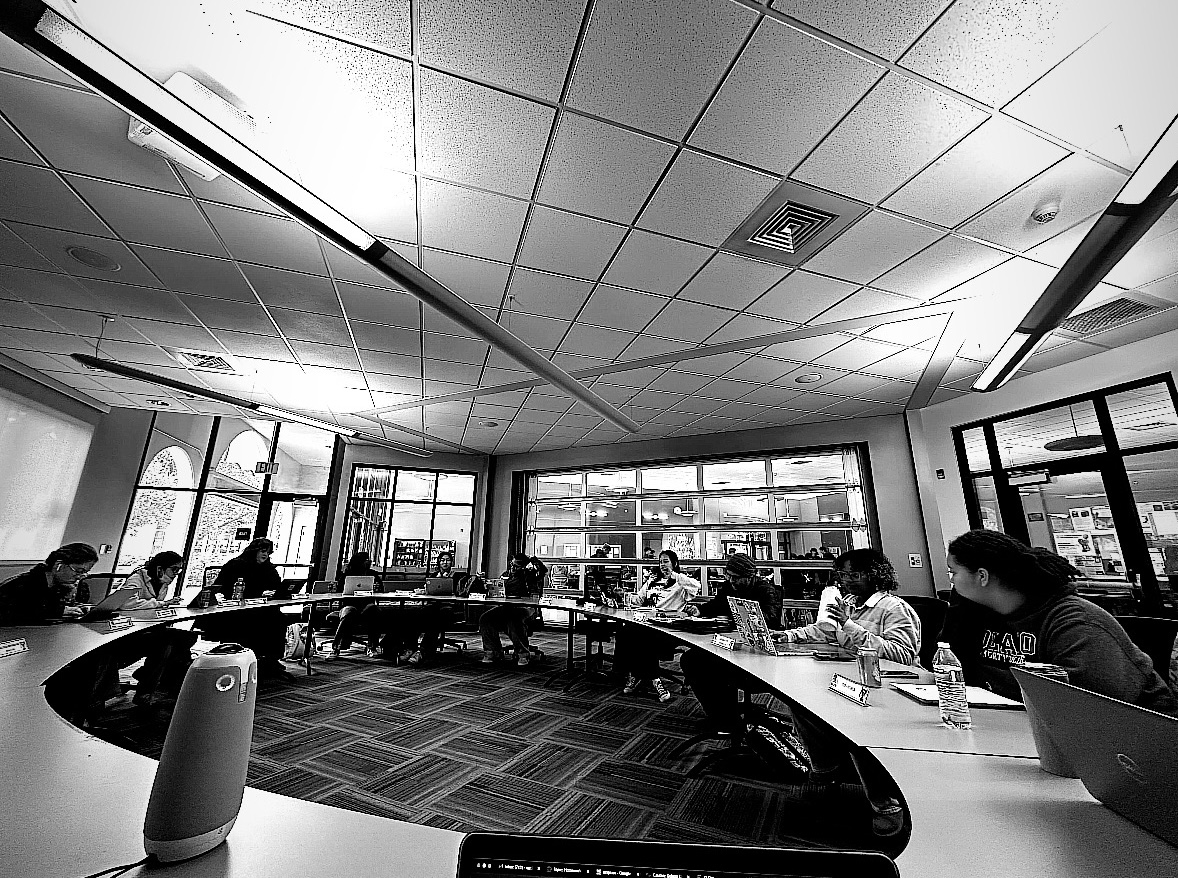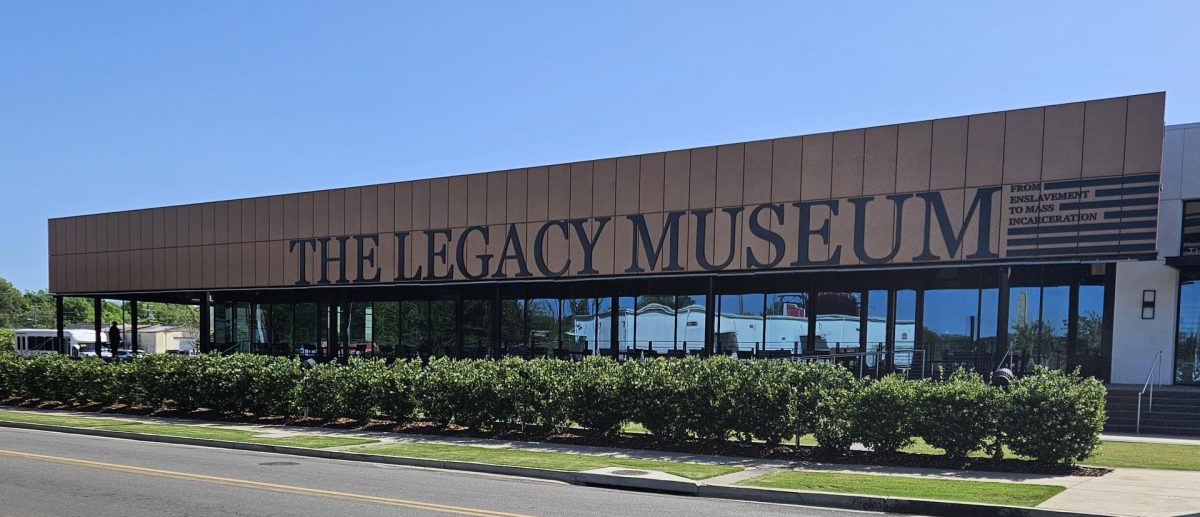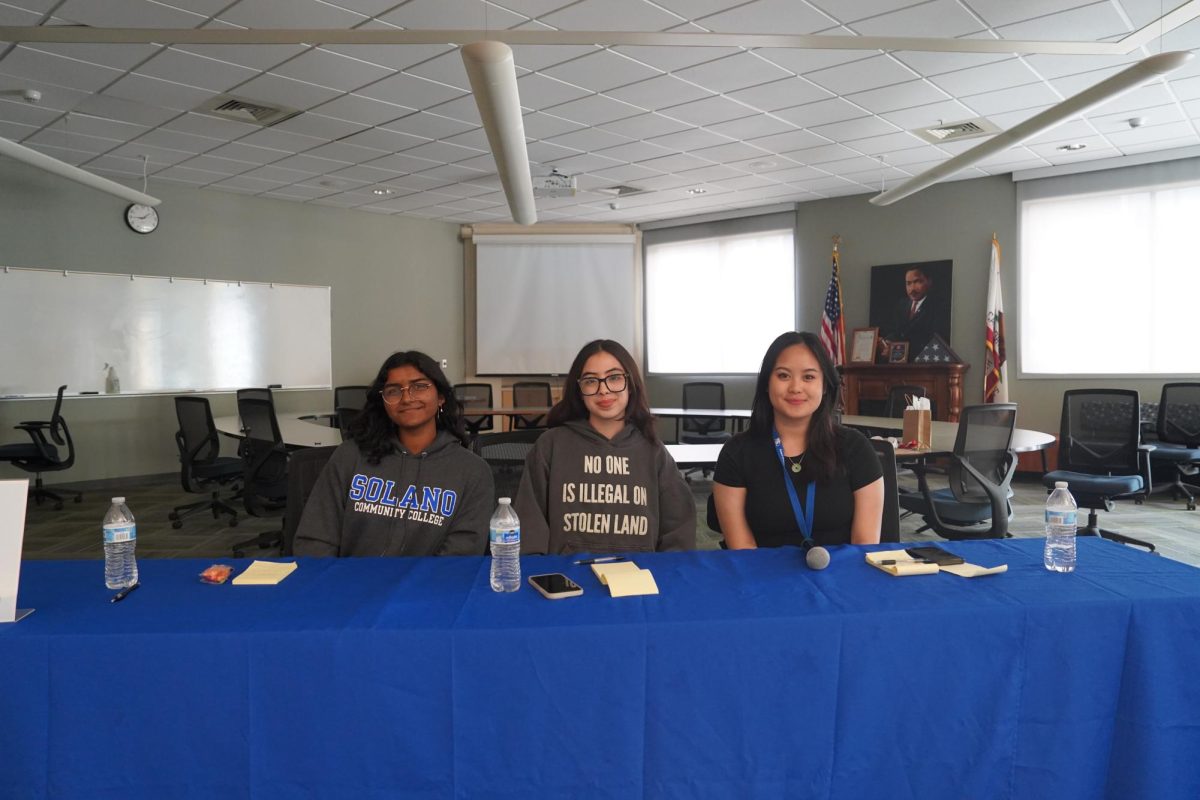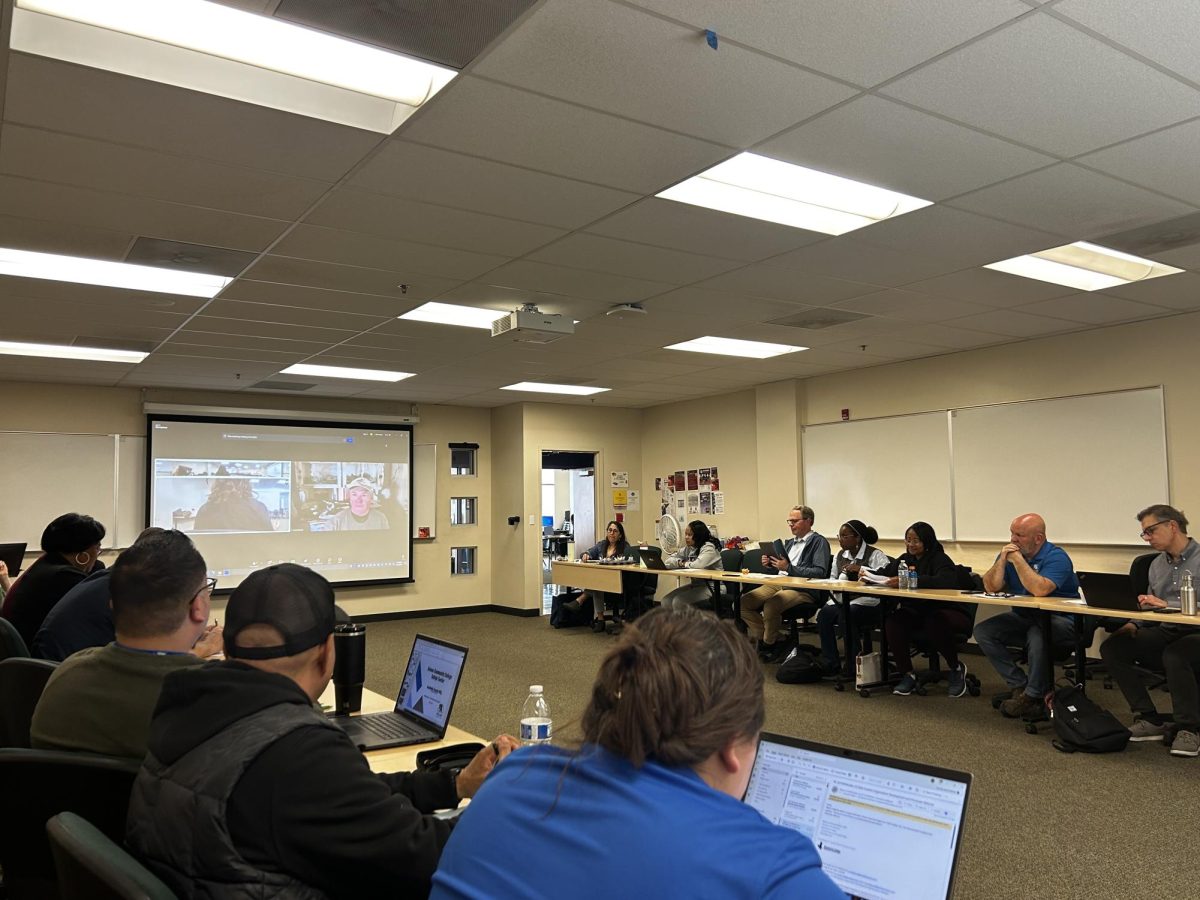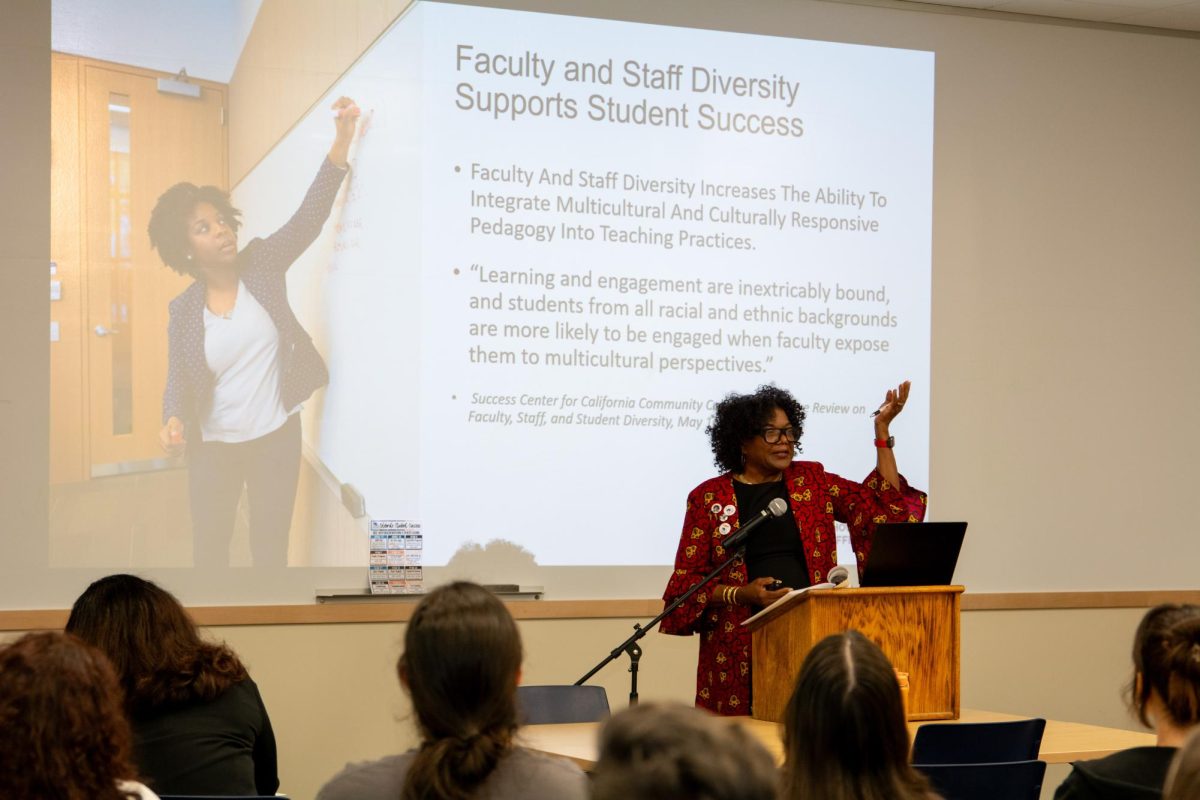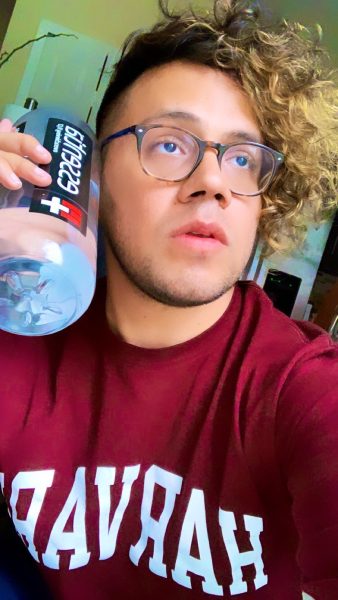Palms are sweaty, knees weak, arms are heavy. Really, it’s just another day of living with anxiety. But enough about me, how do we as a campus feel? To say we’re past due for a check up would be the biggest understatement of the new year.
For many, times are rough with strains that turn to haunt everyday life. Whether it’s struggling with a new year’s resolution, political stress, or seasonal depression. Little did we know, a bigger battle has been playing out before our eyes.

Doctor Amanda Martinez Morrison is the only full time Ethnic Studies professor currently employed at Solano College. Dr Morrison is also a member of the Student Equity and Success Council, a subcommittee of the Academic Senate. This SESC group consists of students, staff, administrators and faculty.
Having been with Solano since 2022, Dr Morrison is now on the tenured track, which she describes as her big break. “It’s the most privileged, stable, full time job you can get as a professor working towards tenure, [which] takes four years” she states.
Dr. Morrison emphasizes how common exploitative hiring practices in higher education have become. “The majority of faculty at basically every college in America are not full time; they’re part time and essentially operate under a ‘temp’ position which is commonly referred to as an adjunct professor. You have little-to-no job security, and it’s a way of staffing professors for cheap. Before getting hired at SCC, I toiled away as an adjunct professor at various colleges and universities for over a decade, and it was pretty demoralizing.”
Staffing in general is a major concern for Dr. Morrison. She highlights “I want to see SCC grow it’s amazing staff of student-development professionals who have unique expertise in supporting vulnerable student populations. Right now I’m especially thinking of our LGBTQ+ students, undocumented students and students in ‘mixed-status’ families who may be citizens themselves but have family members who aren’t. They’re really scared of the new Presidential administration and upcoming mass deportations.”
She further explains, “It’s a vulnerable student population in the Trump era. I want more wonderful, talented student development staff that have expertise in supporting these populations.”
So we begin to understand that there are more struggles faculty face than there are solutions, this results in responsibilities overlapping. Often, professors will not just teach their own curriculum but take on other courses, while also sponsoring different student outreach programs.
Categorical funds are traditionally divided up to aid certain causes helping marginalized populations attending college. Most notably, Student Equity Money are funds the state of California grants community colleges to run equity programs designed to support populations of students that are disproportionately impacted. Communities that include BIPOC, LGBTQ+, undocumented students, foster youth, and homeless students.
How these funds are used is up to the discretion and approval of the Board of Trustees, which makes for a slower process because people don’t always agree on how to apply those funds.
Former English Professor Heather Watson-Perez is the Dean of Student Equity and Success and part of the leadership of SESC. Having taught at Solano since 2017, this is her first semester as dean and is no longer considered faculty. Some of her first actions were to help train staff to go against white supremacist practices in order to advocate for equality in the classroom.
Alongside a dedicated team, Dean WP founded Teaching For Equity in 2018, a program focused on tackling issues to embrace equitable practices that improve the classroom experience.
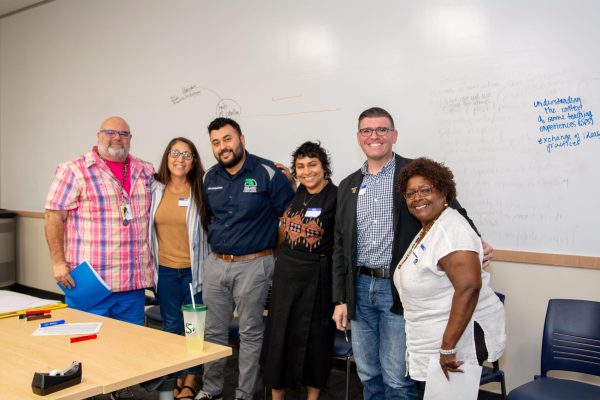
Dean Watson-Perez states, “Not only are we acknowledging racism within the context of what we teach but also trying to unwork common practices in teaching because they stem from this past of white supremacy.”
Watson-Perez adds, “Our academic institutions are built on a system of white supremacy so before as faculty, I felt it was my job to engage those topics so I could engage students in real advocacy work”
This led to changes in curriculum and reading material students interacted with throughout a semester. Rather than stick to the readings of Dr. Martin Luther King Jr, Dean WP found herself assigning the work of James Baldwin in an effort to branch out from the standard activism material.
A challenge faculty has faced are instructors with expertise that outweigh new approaches. That’s where T4E helps bridge the gap, especially helping instructors in teaching roles like science and math where it would be harder to incorporate equitable material.
The little pushback felt from a small contingent of faculty that don’t believe in DEI work hasn’t been enough to deter the work that T4E has been making. In fact, they are now pushing for a similar program called Students For Equity which will help involve the student body in the work being done to achieve equality and promote activism.
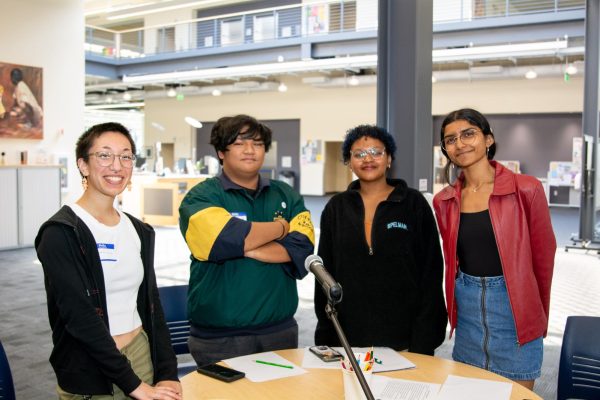
Dean Watson-Perez concluded with a rhetorical question that all instructors should ask themselves, “If you can’t engage your students in their activism, what are you so afraid of being challenged about? Racism, sexism, prejudice are very hard topics that society pressures us not to talk about. If we can acknowledge it, we can be mindful of our privilege and utilize it in ways that are respectful, inclusive and anti-racist.”
As a college, we’re learning to walk on our own two feet again after two presidential administrations and a global pandemic that’s drastically changed the ways in which we’re taught. If we’re checking our pulse, we’re alive and well. If we’re preparing for the future, it begins with the work we do now.
Get involved, join a club that represents your values, make your voice heard, talk with professors, understand the “hidden curriculum” so that you’re able to be successful in and outside of class. Don’t just be the change you want to see in the world, make a conscious decision to promote that change on campus.
You only get one shot, do not miss your chance to blow.


